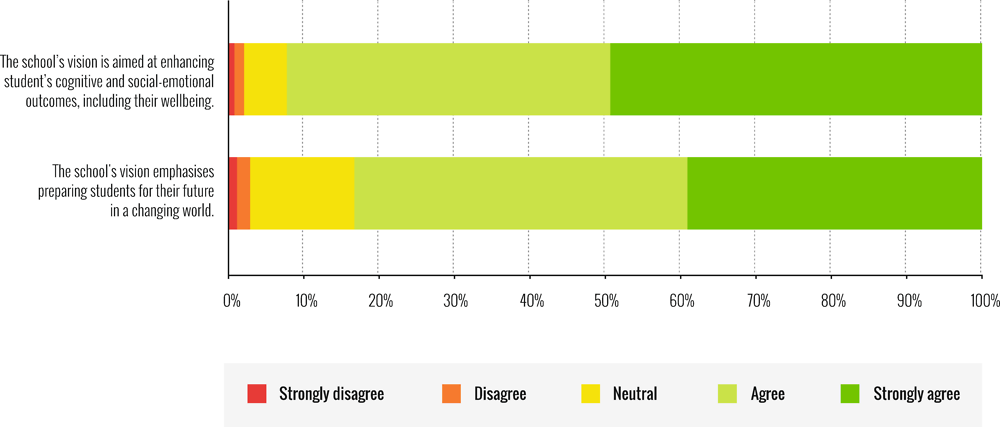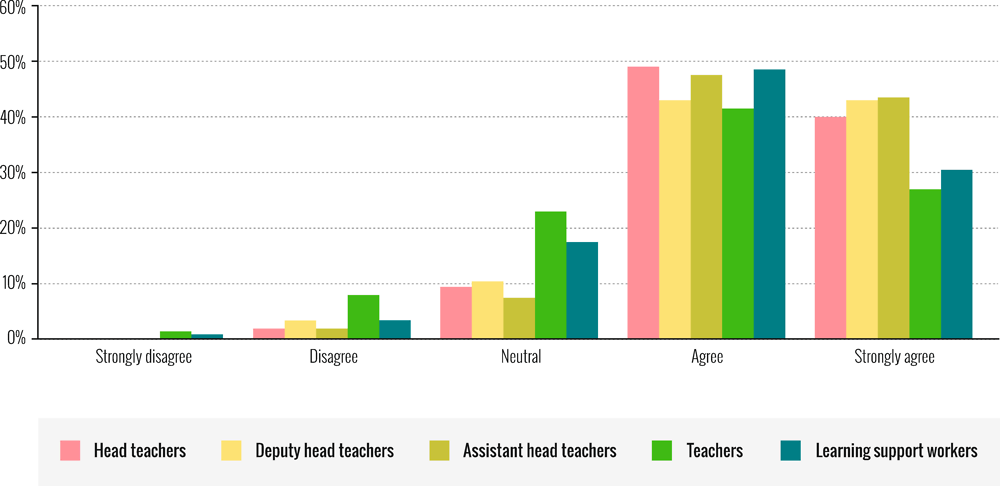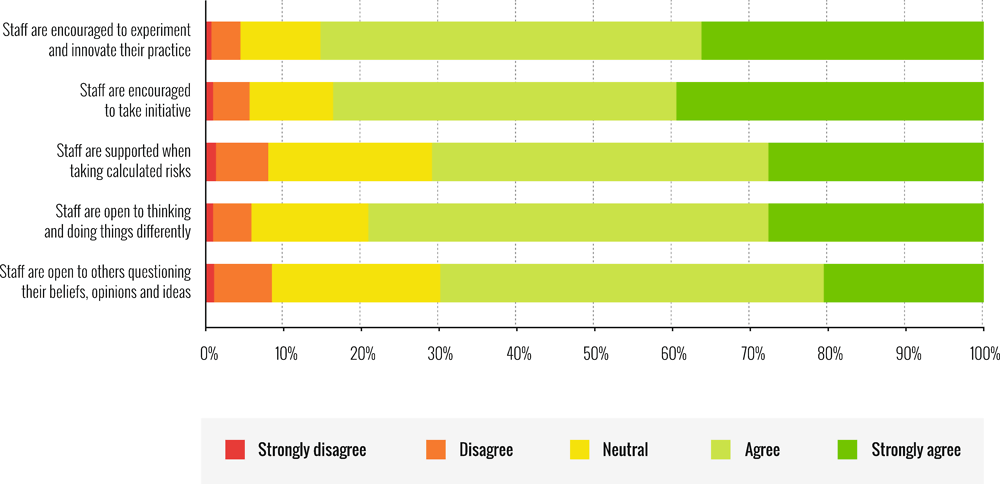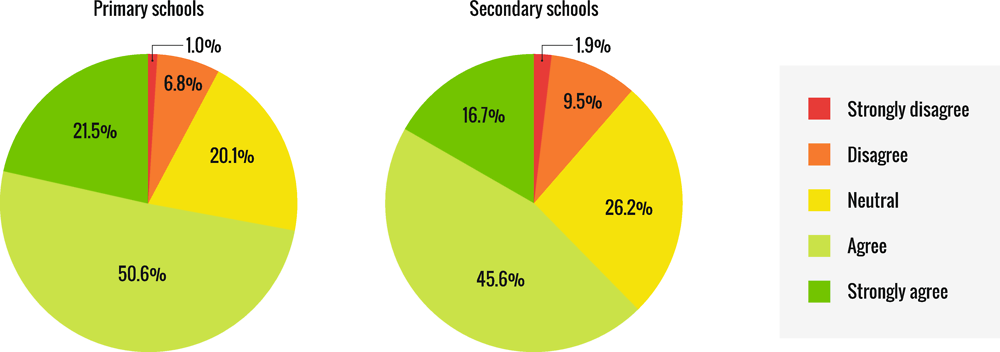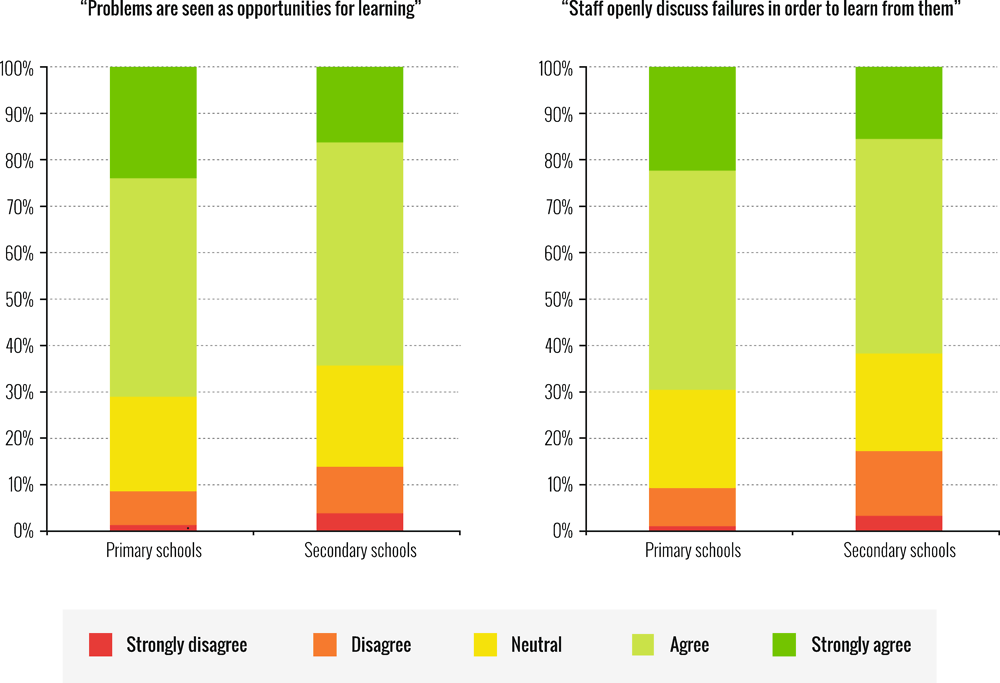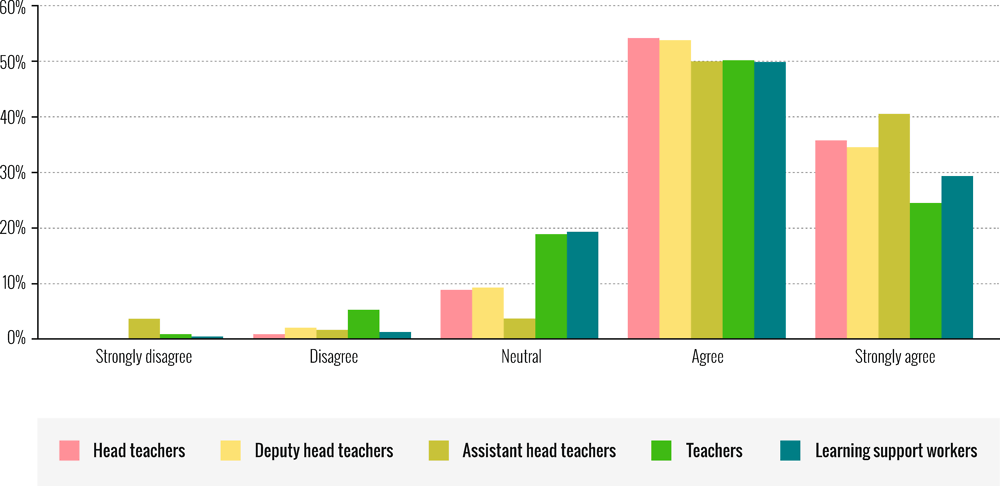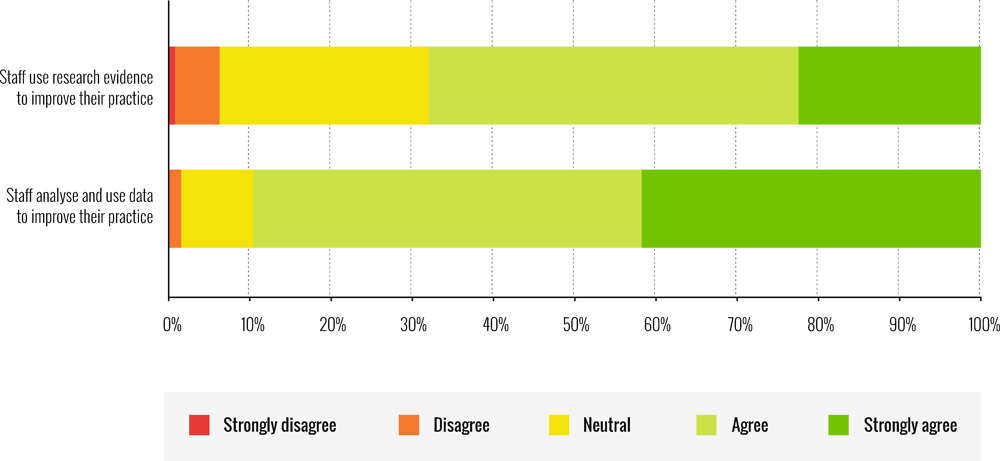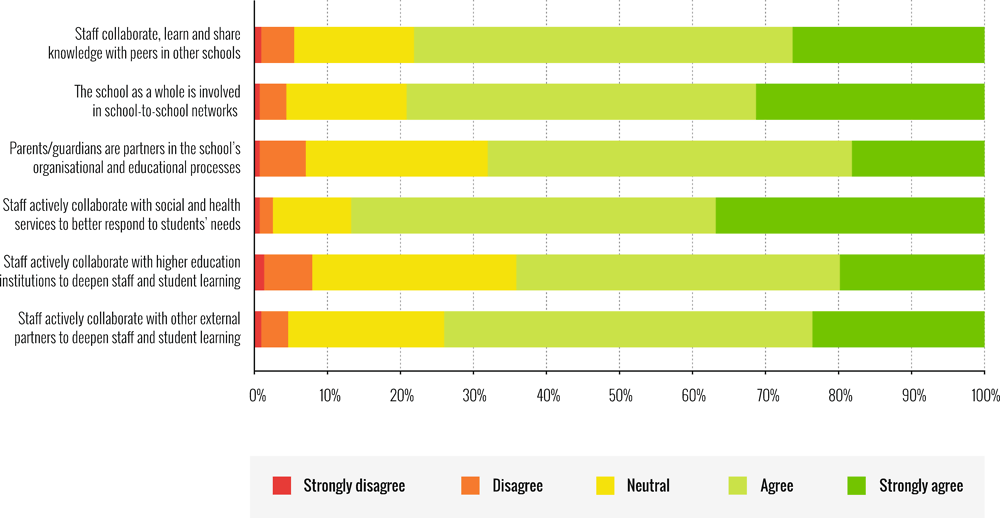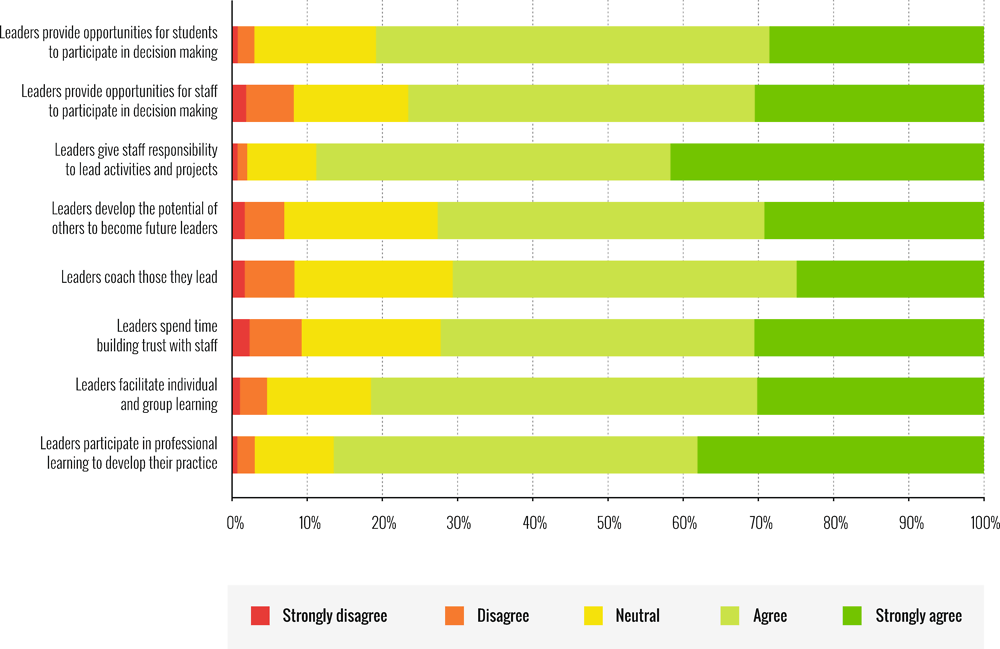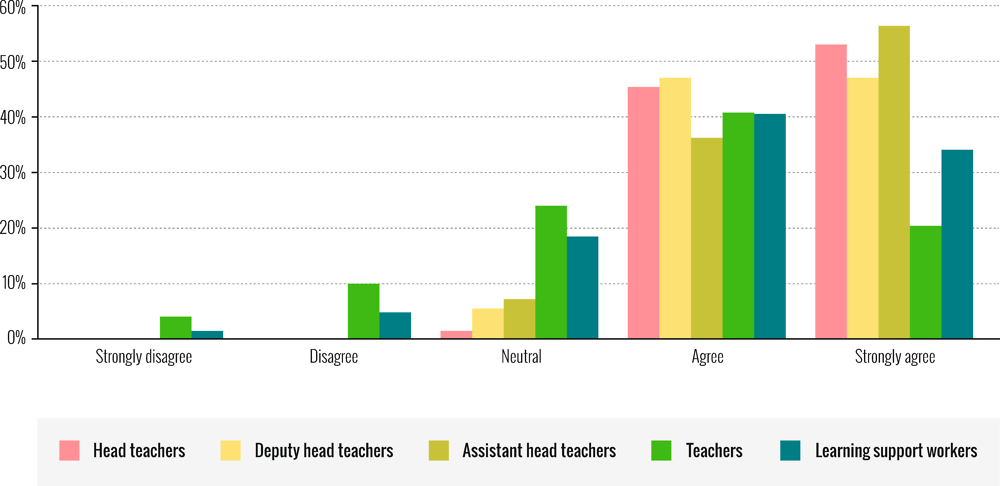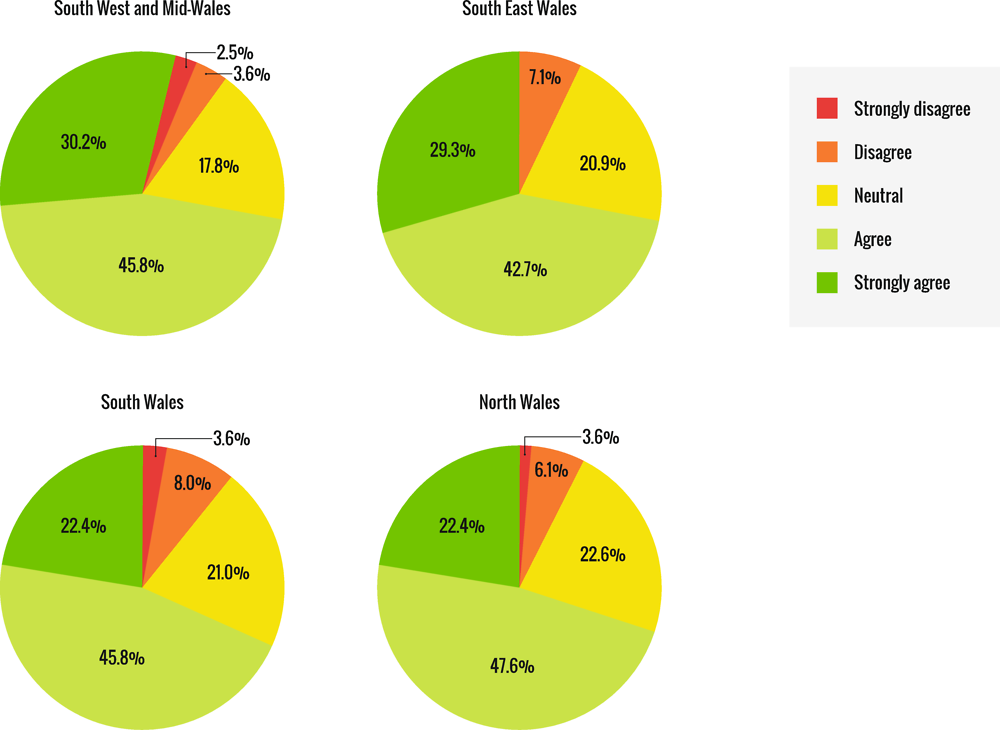[63] Ainscow, M., T. Booth and A. Dyson (2006), “Inclusion and the standards agenda: negotiating policy pressures in England”, International Journal of Inclusive Education, Vol. 10/4, pp. 295-308, http://dx.doi.org/10.1080/13603110500430633.
[13] Andrews, R. et al. (2011), “Strategy implementation in public service performance”, Administration & Society, Vol. 43, pp. 643–671.
[65] Bangor University (2017), Collaborative Institute for Education Research, Evidence and Impact, Bangor University, http://cierei.bangor.ac.uk/about.php.en (accessed on 27 November 2017).
[68] Barth, R. (2001), Learning by Heart, Jossey-Bass.
[23] Borgonovi, F. and G. Montt (2012), “Parental involvement in selected PISA countries and economies”, OECD Education Working Papers, No. 73, OECD Publishing, Paris, http://dx.doi.org/10.1787/5k990rk0jsjj-en.
[57] Brown, C. (2015), Leading the use of Research & Evidence in Schools, Institute of Education Press, London.
[41] Bryk, A. and B. Schneider (2002), Trust in Schools: A Core Resource for School Improvement, Russell Sage, New York.
[24] Byrne, D. and E. Smyth (2010), Behind the Scenes? A Study of Parental Involvement in Post-Primary Education, Liffey Press, Dublin.
[50] Cannon, M. and A. Edmondson (2005), “Failing to learning and learning to fail (intelligently): How great organisations put failure to work to improve and innovate”, Long Range Planning, Vol. 38, pp. 299-319.
[37] Cerna, L. (2014), “Trust: What it is and why it matters for governance and education”, OECD Education Working Papers, No. 108, OECD Publishing, Paris, http://dx.doi.org/10.1787/5jxswcg0t6wl-en.
[25] Desforges, C. and A. Abouchaar (2003), “The impact of parental involvement, parental support and family education on pupil achievements and adjustment: A literature review”, Research Report, No. 433, Department for Education and Skills Publications, Nottingham.
[75] Dimmock, C., D. Kwek and Y. Toh (2013), Leadership for 21st Century Learning, OECD Publishing, Paris, https://doi.org/10.1787/20769679.
[62] Domina, T. (2005), “Leveling the home advantage: Assessing the effectiveness of parental involvement in elementary school”, Sociology of Education, Vol. 78/3, pp. 239-249, https://doi.org/10.1177%2F003804070507800303.
[7] Donaldson, G. (2015), Successful Futures: Independent Review of Curriculum and Assessment Arrangements in Wales, Welsh Government, http://gov.wales/docs/dcells/publications/150225-successful-futures-en.pdf.
[49] Earl, L. and S. Katz (2002), “Leading schools in a data-rich workd”, in Second International Handbook of Educational Leadership and Administration, Springer Dordrecht Heidelberg London New York, http://dx.doi.org/10.1007/978-90-481-2660-6.
[47] Earl, L. and H. Timperley (2015), “Evaluative thinking for successful educational innovation”, OECD Education Working Papers, No. 122, OECD Publishing, https://doi.org/10.1787/5jrxtk1jtdwf-en.
[44] Education Workforce Council (2017), National Education Workforce Survey, Research Report, April 2017, Education Workforce Council, Cardiff.
[61] Epstein, J. (2001), School, Family, Community Partnerships: Preparing Educators and Improving schools, Westview Press, Boulder, CO.
[14] Estyn (2018), The Annual Report of Her Majesty's Chief Inspector of Education and Training in Wales 2016-2017, Estyn, Cardiff, https://www.estyn.gov.wales/document/annual-report-2016-2017.
[8] Estyn (2017), Effective distribution of staff responsibilities to promote professional learning and shared responsibility, Estyn, Cardiff, http://www.estyn.gov.wales/effective-practice/effective-distribution-staff-responsibilities-promote-professional-learning-and.
[45] Estyn (2017), Reducing Workload: A Guide for Teachers and Headteachers, Estyn, Cardiff.
[11] Estyn (2017), The Annual Report of Her Majesty's Chief Inspector of Education and Training in Wales 2015-2016, Estyn, Cardiff, http://www.estyn.gov.wales/sites/default/files/documents/ESTYN_Annual%20Report%202016%20FINAL_ENGLISH_Accessible_WEB.pdf.
[60] Estyn (2016), Report Following Monitoring, King Henry VIII Comprehensive School, Estyn, Cardiff, https://www.estyn.gov.wales/sites/default/files/documents/Monitoring%20report%20King%20Henry%20VIII%20Comprehensive%20School.pdf.
[36] Estyn (2011), With a Little Help From my Friends, Estyn, Cardiff, https://www.estyn.gov.wales/effective-practice/little-help-my-friends.
[66] Fullan, M. (2014), The Principal: Three Keys to Maximizing Impact, Jossey-Bass and Ontario Principal’s Council, Toronto.
[73] Fullan, M. (2011), Change Leader: Learning to Do What Matters Most, Jossey-Bass, San Francisco.
[16] Fullan, M. (2006), Quality Leadership, Quality Learning: Proof Beyond Reasonable Doubt, Lionra+, Cork.
[5] Fullan, M. (1999), Change Forces: The Sequel, Falmer Press, London.
[55] Fullan, M., C. Cuttress and A. Kilcher (2005), “Eight Forces for Leaders of Change”, Journal of Staff Development, Vol. 26/4, pp. 54-64.
[64] Furlong, J. (2015), Teaching Tomorrow's Teachers, Options for the Future of Initial Teacher Education in Wales, Welsh Government, Cardiff.
[22] George, B., S. Desmidt and J. De Moyer (2016), “Strategic decision quality in Flemish municipalities”, Public Money and Management, Vol. 36/5, pp. 317-324.
[74] Hallinger, P. and R. Heck (2010), “Collaborative leadership and school improvement: Understanding the impact on school capacity and student learning”, School Leadership & Management, Vol. 30/2, pp. 95-110, https://doi.org/10.1080/13632431003663214.
[20] Hargreaves, A. and M. Fullan (2012), Professional Capital: Transforming Teaching in Every School, Teachers College Press, New York.
[21] Harris, M. and F. van Tassell (2005), “The professional development school as a learning organization”, European Journal of Teacher Education, Vol. 28/2, pp. 179-194.
[58] Hattie, J. (2012), Visible Learning for Teachers: Maximizing Impact on Learning, Routledge, London.
[35] Hattie, J. and H. Timperley (2007), “The power of feedback”, Review of Educational Research, Vol. 77, pp. 88-112.
[4] Hiatt-Michael, D. (2001), “Schools as learning communities: A vision for organic school reform”, School Community Journal, Vol. 11, pp. 113-127.
[30] Ingersoll, R. and M. Strong (2011), “The impact of induction and mentoring for beginning teachers; A critical review of the research”, Review of Educational Research, Vol. 81/2, pp. 201-233.
[32] Jerrim, J. and N. Shure (2016), Achievement of 15-Year- Olds in England: PISA 2015 National Report, Department for Education, London, https://www.gov.uk/government/uploads/system/uploads/attachment_data/file/574925/PISA-2015_England_Report.pdf (accessed on 17 November 2017).
[29] Kessels, C. (2010), The Influence of Induction Programs on Beginning Teachers' Well-being and Professional Development, Doctoral thesis, Leiden University, Leiden, http://www.voion.nl/downloads/4eaec176-5310-40d0-8bb0-e95ca72aaef3 (accessed on 17 November 2017).
[10] Kools, M. and L. Stoll (2016), “What makes a school a learning organisation?”, OECD Education Working Papers, No. 137, OECD Publishing, Paris, http://dx.doi.org/10.1787/5jlwm62b3bvh-en.
[59] Leithwood, K., D. Jantzi and R. Steinbach (1998), “Leadership and other conditions which foster organizational learning in schools”, in Organizational Learning in Schools, Swets & Zeitlinger, Lisse.
[69] Marsick, V. and K. Watkins (1999), Facilitating Learning Organizations: Making Learning Count, Gower Publishing Limited, Cardiff.
[71] OECD (2018), TALIS Initial Teacher Preparation Study, OECD website, http://www.oecd.org/education/school/talis-initial-teacher-preparation-study.htm.
[9] OECD (2017), PISA 2015 Results (Volume III): Students' Well-Being, PISA, OECD Publishing, Paris, http://dx.doi.org/10.1787/9789264273856-en.
[39] OECD (2017), The Welsh Education Reform Journey: A Rapid Policy Assessment, OECD Publishing, Paris, http://www.oecd.org/edu/The-Welsh-Education-Reform-Journey-FINAL.pdf.
[15] OECD (2016), Netherlands 2016: Foundations for the Future, Reviews of National Policies for Education, OECD Publishing, Paris, http://dx.doi.org/10.1787/9789264257658-en.
[40] OECD (2016), PISA 2015 Results (Volume II): Policies and Practices for Successful Schools, PISA, OECD Publishing, Paris, https://doi.org/10.1787/9789264267510-en.
[48] OECD (2014), Improving Schools in Wales: An OECD Perspective, OECD Publishing, Paris, http://www.oecd.org/edu/Improving-schools-in-Wales.pdf.
[18] OECD (2013), Innovative Learning Environments, Educational Research and Innovation, OECD Publishing, Paris, http://dx.doi.org/10.1787/9789264203488-en.
[67] OECD (2013), Leadership for 21st Century Learning, Educational Research and Innovation, OECD Publishing, Paris, http://dx.doi.org/10.1787/9789264205406-en.
[52] OECD (2013), Synergies for Better Learning: An International Perspective on Evaluation and Assessment, OECD Reviews of Evaluation and Assessment in Education, OECD Publishing, Paris, http://dx.doi.org/10.1787/9789264190658-en.
[17] Pont, B. and R. Viennet (2017), “Education policy implementation: A literature review and proposed framework”, OECD Education Working Papers, No. 162, OECD Publishing, Paris, http://dx.doi.org/10.1787/fc467a64-en.
[72] Révai, N. (2018), “Teachers' knowledge dynamics and innovation in education - Part II”, Neveléstudomány, Vol. 21, pp. 6-17, http://dx.doi.org/10.21549/NTNY.21.2018.1.1.
[70] Robinson, V. (2011), Student-Centered Leadership, John Wiley & Sons, San Francisco.
[51] Schechter, C. and M. Qadach (2012), “Toward an organizational model of change in elementary schools: The contribution of organizational learning mechanisms”, Educational Administration Quarterly, Vol. 48/1, pp. 116-153, http://dx.doi.org/10.1177/0013161X11419653.
[54] Schildkamp, K., L. Karbautzki and J. Vanhoof (2014), “Exploring data use practices around Europe: Identifying enablers and barriers”, Studies in Educational Evaluation, Vol. 42, pp. 15-24.
[1] Schlechty, P. (2009), Leading for Learning: How to Transform Schools into Learning Organizations, John Wiley & Sons.
[28] Schleicher, A. (2018), World Class: How to Build a 21st-Century School System, OECD Publishing, Paris, http://dx.doi.org/10.1787/4789264300002-en.
[34] Schleicher, A. (2015), Schools for 21st-Century Learners: Strong Leaders, Confident Teachers, Innovative Approaches, International Summit on the Teaching Profession, OECD Publishing, Paris, http://dx.doi.org/10.1787/9789264231191-en.
[31] Schleicher, A. (2012), Preparing Teachers and Developing School Leaders for the 21st Century: Lessons from around the World, OECD Publishing, Paris, http://dx.doi.org/10.1787/9789264174559-en.
[2] Senge, P. et al. (2012), Schools That Learn (Updated and Revised): A Fifth Discipline Fieldbook for Educators, Parents, and Everyone Who Cares about Education, Crown Business, New York.
[19] Senge, P. et al. (2000), Schools That Learn: A Fifth Discipline Fieldbook for Educators, Parents, and Everyone Who Cares about Education, Doubleday.
[42] Silins, H., S. Zarins and B. Mulford (2002), “What characteristics and processes define a school as a learning organisation? Is it a useful concept to apply to schools?”, International Education Journal, Vol. 3/1, pp. 24-32.
[43] Somech, A. and A. Drach-Zahavy (2007), “Strategies for coping with work-family conflict: The distinctive relationships of gender-role ideology”, Journal of Occupational Health Psychology, Vol. 12, pp. 1-19.
[33] Thompson, M. et al. (2004), Study of the impact of the California Formative Assessment and Support System for Teachers: Beginning teachers' engagement with BTSA/CFASST, Educational Testing Service.
[27] Timperley, H. et al. (2007), Teacher Professional Learning and Development: Best Evidence Synthesis Iteration, Ministry of Education New Zealand, Wellington.
[56] Vincent-Lancrin, S. and C. González-Sancho (2015), Innovation Strategy for Education and Training: Progress Report No. 10, OECD Centre for Educational Research and Innovation Governing Board.
[46] Watkins, K. and V. Marsick (1996), In Action: Creating the Learning Organization, American Society for Training and Development, Alexandria.
[3] Welsh Government (2017), Education in Wales: Our National Mission 2017-21, Welsh Government, Cardiff, https://gov.wales/docs/dcells/publications/170926-education-in-wales-en.pdf.
[38] Welsh Government (2017), Professional Standards for Teaching and Leadership, Welsh Government, Cardiff, http://learning.gov.wales/docs/learningwales/publications/170901-professional-standards-for-teaching-and-leadership-en.pdf.
[12] Welsh Government (2017), Schools in Wales as Learning Organisations, Welsh Government website, http://gov.wales/topics/educationandskills/schoolshome/curriculuminwales/curriculum-for-wales-curriculum-for-life/schools-in-wales-as-learning-organisations/?lang=en (accessed on 30 November 2017).
[6] Welsh Government (2016), Professional learning communities, Welsh Government website, http://learning.gov.wales/resources/collections/professional-learning-communities?lang=en (accessed on 07 November 2017).
[26] Williams, B., J. Williams and A. Ullman (2002), “Parental involvement in education”, Research Report, No. 332, Department of Education and Skills , Norwich, http://dera.ioe.ac.uk/4669/1/RR332.pdf.
[53] Yang, B., K. Watkins and V. Marsick (2004), “The construct of the learning organization: Dimensions, measurement, and validation”, Human Resource Development Quarterly, Vol. 15/1, pp. 31-55.

